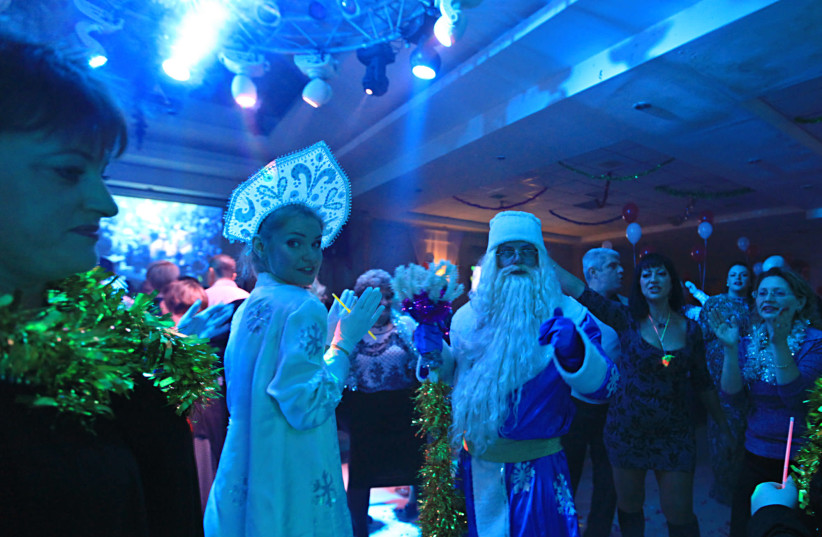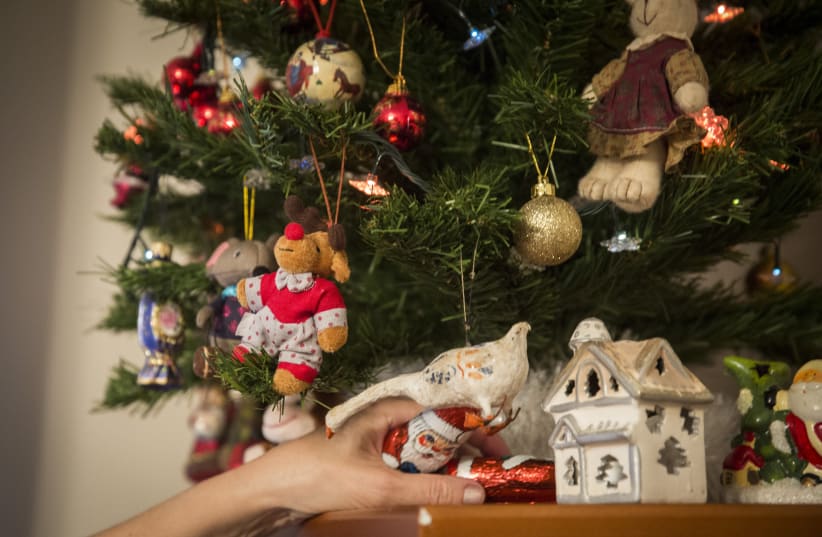While December 31 and January 1 traditionally are seen as the dates for New Year's, celebrating the end of the old year and beginning of the new one, it is not the only holiday on this day, with another, Novy God, being widely celebrated by Russians and nationals from the former Soviet Union.
But what exactly is this holiday? Where did it come from and how is it celebrated in Israel?
Indeed, Novy God has a fascinating history.
Here is everything you need to know about it.
History

Literally translating to "New Year" in Russian, the Novy God holiday as we know it became widespread in the Soviet Union starting in the 1930s and 1940s. The holiday does carry some old traditions, some of which bear similarities to many other winter and new year holidays, but they are distinct for being observed secularly.
This secular observance is important as it allowed the holiday to be celebrated as a non-working day in the Soviet Union, which had officially banned organized religion. However, its practice continued even after the Soviet Union's collapse in the 1990s.
The holiday is still observed in Russia and the other countries of the former Soviet Union, as well as among many former Soviet emigrant communities worldwide, including Israel.
Israel in particular has had an interesting relationship with Novy God. Due to many of the holiday's traditions and association with the Christian new year, it was often seen as anathema to the Jewish values of the country. However, this has changed over time, and while not all Israelis observe it, awareness of it has skyrocketed.
That being said, stigmas do remain.
"It is exciting to see that today most of the State of Israel knows what Novy God is and recognizes the contribution of the Russian-speaking aliyah to the country," said Alex Riff, director-general of the Million Lobby, at the start of 2021 following a study on Novy God in Israel. "However, even though 30 years have passed, many stigmas still accompany us and Russian speakers are not adequately represented in most sectors of the Israeli economy."
Today, Novy God continues to be celebrated in Israel, and it is common for politicians and other public figures to wish Russian Israelis an s novim godom.
Traditions in Israel
A few main traditions define the Novy God holiday. The most notable one of these, however, is the presence of large decorated trees that, despite the similarities, are not the same as Christmas trees.
Also important are the Novy God dinners, usually filled with traditional Russian cuisine like Olivier salad, which is made with potatoes, vegetables, eggs, meat, and mayonnaise; another salad called herring under a fur coat, which is made of layers of herring, boiled carrot and grated beets with mayonnaise; and caviar sandwiches.
Celebrations are also common, but they are more likely to be smaller family celebrations rather than large parties. However, some people do dress up in these celebrations, such as taking on the role of Grandfather Frost.
